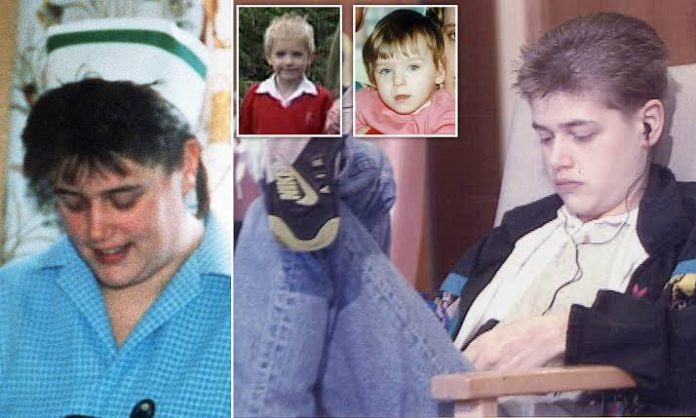‘Angel of Death’ serial killer nurse Beverley Allitt faced a panel of experts on Tuesday in her first steps towards release, according to reports.
She appeared before a mental health tribunal where she was assessed for a potential transfer to a mainstream prison for the first time since her sentence began.
What type of serial killer is the Angel of Death?
The former nurse, now 54, killed Liam Taylor, seven weeks, Timothy Hardwick, 11, Becky Phillips, two months, and Claire Peck, 15 months, over the course of 59 days at Grantham Hospital in Lincolnshire in 1991.
She was handed a minimum 30-year sentence in 1993 for murdering the four children and attempting to kill nine others.

However, she spent just a week in prison before she was diagnosed with a psychiatric disorder.
Allitt could now be moved from Rampton Secure Hospital in Nottinghamshire to a mainstream prison, The Mirror reports.
This means that Allitt could apply for parole six months after a potential move to the new prison.
But her victims and her families have said they feel ‘terrified’ at the thought of the killer going free once again.
Alan Usher’s daughter Kayley was just 15 months when Allitt attempted to kill her by injecting an air bubble under her arm.
Kayley survived but has been left with long-term health issues such as with fine motor skills, hearing and mobility.

Mr Usher told The Mirror: ‘Allitt should never have been in a hospital, she should have been sent to prison.
‘Can you imagine if she were freed? It would destroy Kayley. She’s be terrified, looking in cupboards and around the house because she didn’t feel safe.’
Alan and his wife Sharon adopted Kayley when she was a toddler and the family still live in Grantham.
Allitt took the lives of four children and tried to kill nine others by tampering with their injections.
Originally her crimes were suspected to be down to natural causes, but blood samples retained from nine of the children who had collapsed or died revealed that they had been injected with lethal doses of insulin, potassium or lignocaine.
After a lengthy trial, Allitt was found guilty of four murders and nine counts of causing grievous bodily harm with intent, and was given 13 life sentences.












